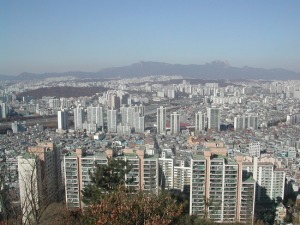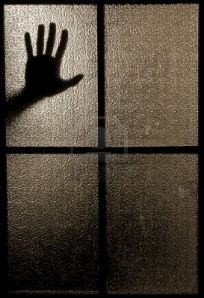Finally, spring has sprung and we no longer have to wear our entire wardrobe before braving the outside world. These past few weeks have seen some glorious spring days with temperatures over 16°C. As the buds begin to open and the blossoms begin to bloom we prepare ourselves for the unbearably hot, sticky summer in the concrete urban jungle.
Meanwhile, the next few cooler spring months are welcoming after the torturously barbaric winter. It was during this weather transition that I was introduced to a strange Korean custom. Travelling shoulder to shoulder with complete strangers in a moving airless box is already uncomfortable, but when you add heat into the equation you get meals on wheels. You would think that opening a window to let a breeze in and the air circulate is a completely natural
reaction. However, keeping a window open as a bus makes its approach to a tunnel creates an awkward atmosphere. Almost perfectly synced it is like observing some ancient ritualistic tradition as the click of locking windows is heard around the bus.
Should one window be open, mad hysteria ensues. People work together in an effort to close it; bodies move and invade personal space whilst attempting to reach their goal. I was blissfully unaware of this tradition and almost made a 16-stone (224lbs) man cry as I fought with him to keep my window open. Sadly, the whiney voice that came out of the mouth of this mature man in his mid-30s was too much for me. It was a sound that reminded me of a half-dead animal, whimpering to be put out of its misery. Pity and weariness took over and for the next peaceful thirty seconds the window remained closed.
When my stop came up, I fiendishly made sure to open the window before I left the bus. As I walked away, I couldn’t help feeling perplexed by the whole fraught experience. I thought why do South Koreans react in this way? Was their some arcane science that passengers would be sucked from the bus as it reached high speed in a tunnel? Could the wind cause uncontrollable resistance to the degree that the bus driver could do nothing to avoid a crash, with the hope that the passengers would survive?
I could not fathom any reasonable explanation for this bizarre ingrained behaviour. After some detective work I found that the Koreans are fearful of the toxic fumes thriving in the tunnel and that inhalation could potentially be fatal.
My girlfriend told me of another false belief currently circulating. With Seoul being 700 miles from Tokyo, concerns about radioactivity have been in the news. Apparently, one questionable way to stop the radiation is to ingest some salt as doing so will offer protection from radioactive iodine. Unfortunately, the large amount of iodised salt (at least 1.5 kg) needed to bring about this ‘protection’ would be enough to put the believer into intensive care, or worse.
Another protective notion relating to radiation and that is actually instructed by her school is to shut all the windows to keep the radiation from entering the building. I’m not a scientist, but if glass had the capability to stop radiation wouldn’t it have made sense for the Japanese to have built a glass nuclear reactor? Whether or not my partner’s co-workers and students had complete faith in the protection of glass I don’t know, but I do know that they became increasingly disgruntled as they slowly suffocated in their ‘radiation-free’ classroom.
So if you don’t want to cause offence in Korea – don’t open a window.
© John Brownlie 2011


Recent comments